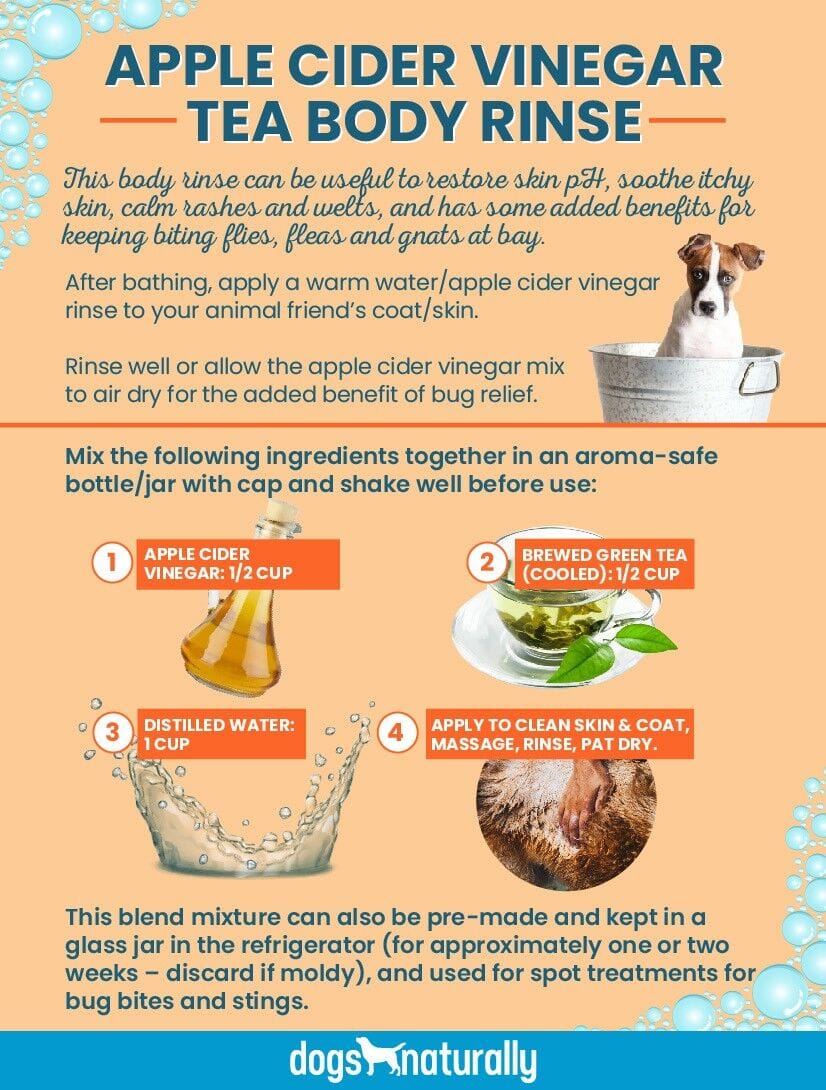Itching and scratching can be a significant source of discomfort for dogs, impacting their quality of life and that of their owners. If you’ve found yourself repeatedly asking, “Why is my dog so itchy?”, understanding the potential causes and effective remedies is crucial. While some itching can be managed at home with natural solutions, persistent or severe cases warrant a visit to your veterinarian. This guide explores several natural remedies that can help soothe your dog’s irritated skin.
It’s important to note that for ongoing or severe itching, especially if your dog is developing self-inflicted wounds, a professional veterinary diagnosis is essential. This guide is intended to provide helpful information for common, less severe itching issues.
Soothing Skin with Herbal Tea Soaks
Herbal teas like chamomile, calendula, and green tea possess natural properties that can cool irritated skin, reduce inflammation, and provide a calming effect. These are particularly beneficial for dogs experiencing hot, itchy patches that are prone to becoming raw from excessive scratching.
To prepare a soothing soak, fill a tub or sink with warm water and steep several herbal tea bags for approximately three minutes. After removing the tea bags, allow your dog to soak in the bath for at least five minutes. For localized itching, steep one or two tea bags in two cups of hot water. Once cooled, this concentrated tea can be applied to affected areas and allowed to air dry without rinsing.
The Benefits of Apple Cider Vinegar
Apple cider vinegar (ACV) is a versatile natural remedy for dry, itchy skin. Its antiseptic and antifungal qualities can offer relief, especially from irritations like poison ivy. However, it’s crucial to avoid applying ACV to raw or open wounds, as it will sting and can exacerbate the injury.
To apply ACV safely, create a 50/50 solution with water in a spray bottle. This allows for targeted application to affected areas without contact with any broken skin. If your dog has come into contact with poison ivy, oak, or sumac, soaking their paws in this diluted ACV solution for up to five minutes can help neutralize the irritant.
Oatmeal Baths for Canine Itch Relief
Oatmeal is a well-established remedy for soothing dry, itchy skin in humans and is equally safe and effective for dogs. Many hypoallergenic dog shampoos incorporate oatmeal as a primary ingredient to combat skin irritation.
For a full oatmeal bath, grind plain oatmeal into a fine powder and add it to your dog’s warm bathwater. Allow it to dissolve, and let your dog soak for 10 to 15 minutes to calm red, inflamed skin. Since oatmeal is non-toxic, a small amount ingested during the bath is generally harmless. If your dog dislikes bath time, consider alternative methods for administering this remedy.
Alternatively, an oatmeal paste can be made by gradually adding water to ground oatmeal until a spreadable consistency is achieved. Apply this paste directly to irritated spots, ensuring it reaches the skin, especially for dogs with longer coats.
Incorporating Plain Yogurt
Feeding your dog sugar-free, plain yogurt can offer several health benefits, potentially addressing skin issues that may stem from digestive problems. This remedy is particularly helpful for dogs experiencing certain types of rashes, hives, or allergies. It’s advisable to consult with your veterinarian before adding yogurt to your dog’s diet to understand any potential risks or benefits specific to your pet.
A small amount of yogurt—one teaspoon for small dogs and two teaspoons for larger breeds, offered once a week—can support overall gut health. Most dogs enjoy the taste of yogurt, but it can also be mixed with their food to aid digestion.
Coconut Oil for Skin Health
Coconut oil is a highly effective natural remedy for dogs suffering from itchy skin when other methods have failed. Its thick consistency provides immediate soothing relief, while its inherent properties help calm the skin. Coconut oil creates a natural barrier on the skin, protecting it from environmental irritants.
Due to its viscous nature, coconut oil is ideal for canine skin applications and is a common ingredient in many pet care products. It possesses antibacterial and antifungal properties and acts as an excellent moisturizer, penetrating the fur to directly benefit the skin. Dogs with eczema, allergies, yeast infections, insect bites, or stings can all find relief through the direct application of coconut oil.
To use, solidify coconut oil by refrigerating it. Then, massage the solid oil into your dog’s coat and skin for quick relief from dryness and irritation. Consistent application can lead to a healthier coat and a significant reduction in persistent itching.
Addressing Itchiness in Puppies
If your puppy is experiencing severe itchiness, and common causes like diet or environmental factors have been ruled out, it is highly recommended to consult a licensed veterinary dermatologist. Veterinary specialists have access to diagnostic tools and expertise that general practitioners may not, allowing for a faster and more accurate identification of the underlying cause. This could range from food allergies and environmental sensitivities to behavioral issues.
While the natural remedies mentioned above are generally safe for most dogs, always seek professional veterinary advice before implementing any new treatment for your pet. A proper diagnosis from your vet is the most effective way to ensure your dog receives the appropriate care for their itchy skin.
For peace of mind regarding unexpected veterinary costs associated with skin conditions and other health issues, consider Accident & Illness Dog Insurance. Plans are designed to help manage veterinary bills, allowing you to prioritize your pet’s health.
Disclaimer: The information provided in this article is for educational purposes only and should not replace professional veterinary advice. Always consult with your veterinarian regarding any health concerns or before starting any new treatment for your pet.
The pursuit of optimal pet health, including managing skin conditions, can be greatly supported by comprehensive care. Ensuring your beloved companions receive top-tier treatment is paramount. For those seeking the best for their pets, explore options for comprehensive coverage.

